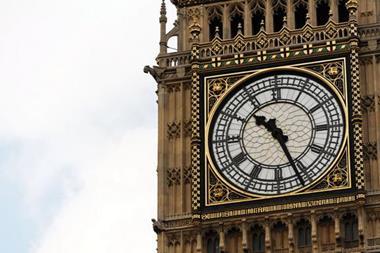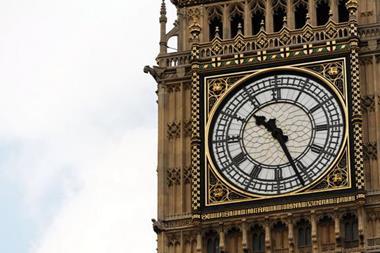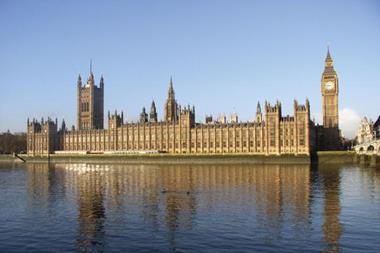Has fraud boomed in the recession? Or is it simply that cash-strapped copmanies are spotting things earlier? As the old adage goes, there's no such thing as a small fraud, just those that haven't had time to grow. Peter Davy reports
Anyone who wants to link the worldwide recession to rising fraud won’t find themselves short of statistics. In the UK, for example, BDO’s Fraudtrack survey published in January showed reported fraud breaking the £2 billion barrier for the first time, with larger frauds up 76 per cent; KPMG, meanwhile, recorded the highest level of fraud in its Fraud Barometer’s 22 year history, with the value of cases coming to court at £1.3bn at the end of a decade it dubbed the “Naughty Noughties”; internationally, meanwhile, PricewaterhouseCoopers’ Global Economic Crime Survey showed almost of half companies saying the cost and incidents of fraud had risen. Of the 3,037 respondents globally, 30 per cent reported having experienced fraud in the last twelve months. In Russia, it was 71 per cent.
And, of course, that feels instinctively right. It’s not just the high profile cases that we’ve seen since the crisis began, such as Madoff, Satayam, Alan Stanford or Jérôme Kerviel at Société Générale; it’s also logical.
As PwC partner and forensic accountant Tony Parton explains, the Fraud Triangle, which has been used in the industry since the 1960s and identifies the three factors present when fraud occurs, still holds today: fraud happens where there is motive, opportunity and rationalization.
“In a recession all three increase,” he points out.
That’s perhaps most obvious when it comes to the motive, whether it is due to money trouble or pressure to meet sales or performance targets that are more difficult to achieve (the most common factor cited by respondents to the PwC survey). The opportunity, meanwhile, comes as businesses take out layers of management and oversight to cut costs. Finally, related to that is the rationalisation: how the fraudsters justify their behaviour. As David Robillard, country manager for Spain at Kroll, explains, downsizing, salary freezes and cancelled bonuses have all added to the potential for a sense of grievance among employees.
“One of the biggest issues as a result of the crisis since 2008 has been a breakdown in social contract between in employers and staff,” he argues. That makes it easier for them to excuse defrauding the company.
Outside companies, too, there are obvious factors adding to the risk of fraud.
The financial services sector probably loses more money to fraud than any other. The National Fraud Authority, a UK government agency, in its estimate of the economic costs of fraud earlier this year identified the sector as the prime loser in the private sector – £3.8 billion a year (although it says this understates it due to lack of data).
This recession has been particularly bad for the industry, though, because of its roots in the credit crisis. As Nick Mothershaw, director of fraud solutions at Experian, explains, not only do banks have to contend with the usual tendency in a recession for customers to make illegitimate claims, dishonestly reporting their card lost or stolen and asking for a refund on their spending, for example, but the collapse of the subprime sector has also had an impact. That means not just an increased risk in fraudulent credit card applications but also in unsecured personal loans.
“In the past they might have gone for a consolidation loan in the subprime market, but they’re no longer there, so it’s driving people to commit fraud in the prime sector,” he says. Likewise, there’s also been a surge in fraudulent mortgage applications, for the same reason – in fact KPMG’s report found mortgage fraud had doubled in the last year, and it predicts the rises will continue.
Similarly, insurance companies find fraud is, as ever linked to the economy. Much of that, of course, are the usual claims by individuals on general lines, such as accidental damage claims under home insurance, for example, but it’s also relevant for commercial customers. There is, for instance, historically a connection with recessions and fraudulent arson.
“We’ve seen some very big increases of fraud inside commercial books,” says Richard Davis a board member of the UK’s Insurance Fraud Bureau, who puts much of it down to pressure from the recession – particularly on SMEs.
It’s also a significant issue for larger companies when it comes to crash for cash scams, since fraudsters are often tending to target branded vehicles. As Mark Newbould, claims manager at Axa Corporate Solutions UK explains, not only do they know that corporate fleets will be insured, but the drivers are often less particular about noting down the details of the accident. Added to that, the corporate market tends to use accident management companies, whose main priority is to get the vehicle repaired. So, while an accident may involve a vehicle with three people in it, by the time it comes through to the insurer there are five. If no one has noted down the details, it’s impossible for the insurer to pick up the fraud.
“Getting sufficient detail on these incidents is the biggest issue for us,” says Newbould.
A mixed picture
However, for all that, the risk of fraud is not evenly spread. Kroll also does a global fraud survey, which confirms a tough year for financial services. On the other hand, others, such as the construction industry and natural resources, for which the recession has meant a big drop in sales, have actually seen less. In fact, economy-wide, the gainers and losers have cancelled each other out, so that the total losses for the year rose only slightly on 2008.
As Robillard explains the reason a recession doesn’t necessarily mean more fraud is simple: “Growth masks fraud.”
You can see that most obviously in Ponzi schemes like Madoff’s. It worked for as long as investors continued to put money in; it fell apart when investors wanted to withdraw funds.
In fact, as Chris Maurice, risk financing manager at BT says, you can argue that it’s not so much fraud that is up as a result of the recession, but rather that detection has improved. With the cost constraints everybody is under, there is simply more attention on where money is going, and that inevitably leads to existing fraud being uncovered.
“There are now rocks being turned over that haven’t been looked under for years,” as Maurice puts it. “It’s no surprise that there are lots of spiders coming out.”
For businesses that means three things. First, that fraud is likely to continue to rise as more are detected. At BDO, head of fraud Simon Bevan estimates that reported fraud in the UK will treble over the next two years.
There is, for instance, likely to be a big increase on commercial lending fraud identified in coming years: loans made before the crisis that for now the banks have simply identified as non-performing. As the assets securing them increase in value, though, they will seek recovery.
“That’s the big increase yet to come,” argues Bevan.
Related to this, as ever during a recession, regulators have beefed up and will increasingly be looking to pick up on fraudulent activity – likely to be a significant factor when it comes to bribery, particularly (see box). That should further increase detection in coming years.
“No one in the current political environment is going to criticise the regulator for over-regulating,” points out Jonathan Middup, in the fraud investigation team at Ernst & Young.
Second, the risk of new frauds in the coming couple of years is in fact likely to increase, for a variety of reasons. That’s partly because there will be more money around, while there tends to be a delay in filling the middle management oversight positions and increasing pay and incentives for staff. The opportunity will therefore increase without any decline in the incentive or scope for rationalisation on the part of potential fraudsters. It’s also partly because during the recession companies have been sheltered from some of the risk in emerging markets. As they look again to the potential for double digit growth in developing nations, they will face new risks.
Of course, that doesn’t mean companies shouldn’t go into them. After all, points out Robillard, an American bank can be exposed to risk from organised criminals in Russia or China without leaving home. “Geography is no an inhibiting factor in perpetrating fraud nowadays,” as he puts it. However, there are obvious differences to doing business in Spain and Mexico, for example, which he works between.
“Having a strong rule of law and authority makes a big difference,” he says.
There are also likely to be increasing risks opening up in different areas as business picks up. Insider trading will be on the up, reckons Bevan; information theft is an increasing issue, says Robillard; and Parton reckons accounting fraud is also key, having already quadrupled in the last six years.
And this links to the final point: many of the frauds being discovered now have been in place for years. As Middup points out, there’s an old adage in the industry: There’s no such thing as a small fraud; there are just those that haven’t had time to grow. That means the seeds of tomorrow’s frauds have probably already been planted today. Yet how well placed companies are to spot them is another question.
On the one hand, the technology that opens up new vulnerabilities also puts new tools at detectors’ disposal: at electronic payments solutions provider ACI Worldwide, risk solutions consultant David Divitt says the data analytics capabilities for banks, for example, have vastly improved.
“They’re now realising that they have a huge wealth of information available to them and that there are systems that can handle such massive amounts of data with relative ease,” he says. That should help pick up some emerging frauds before they get too big.
Outside the financial services industry, though, things are less impressive, reckons Parton. In fact, across the PwC survey, 28 per cent of companies had done no fraud risk assessment at all, and another 31 per cent carried it out only once in the year. For too many, fraud is still not a priority.
As Parton says: “If you don’t go looking for fraud, you’re not going to find it.” Or, rather, you probably will – eventually.
Bribery and corruption
One area where risk definitely is up and is likely to continue to rise in coming years is bribery and corruption.
As ever, that’s only partly down to the recession, which undoubtedly has led to greater temptation in businesses to both accept bribes and to give them in order to win business. Ernst & Young’s European Fraud survey last year, for example, found that a quarter of the 2,200 individuals in major companies thought it was acceptable to make payments to win new business – leading it to suggest integrity had been a casualty of the downturn.
The real increase in risk going forward, though, comes from greater vigilance on the part of the authorities in detecting it and, in the case of the UK, new legislation in the form of the Bribery Bill.
“It’s the risk of getting caught and the consequences that is pushing companies to think about this,†says Paul Worth, a partner at law firm Eversheds.
The bill, particularly, is pretty draconian. It makes bribery a strict liability offence, so if employees or agents commit it, the company is guilty of a crime – even if board members knew nothing about it. The only defence is for a company to be able to show it has “adequate measures†in place to prevent bribery and corruption occurring.
What it will mean is that from lagging both the EU and US in tackling bribery, the UK will overtake them. As François Valerian, head of the Private Sector Program at Transparency International, puts it: “When this bill is adopted the UK will clearly lead the fight against corporate corruption, because it will have the strongest anti-corruption legislation in the world.â€
Postscript
Peter Davy is a freelance writer



















